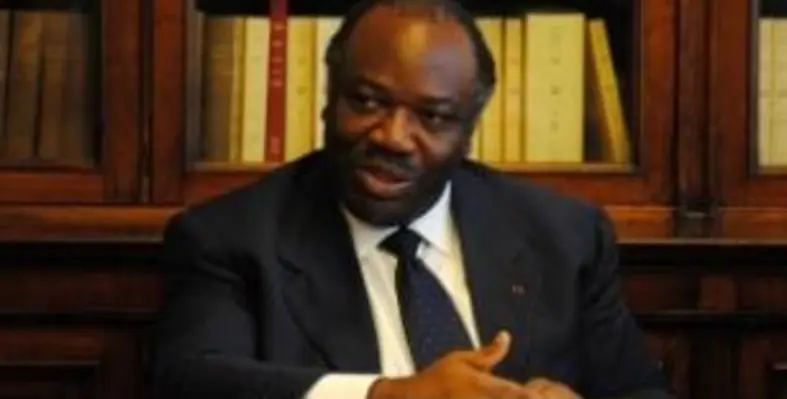Page 1 of 2High oil prices and highly proactive and progressive government policies have driven Gabon’s economic trajectory over recent years, attracting the attention of many international companies
A combination of high oil prices and the fruits of highly proactive and progressive government policies have driven Gabon’s economic trajectory over recent years. This has attracted the attention of many international companies who recognise that in Gabon is found one of central Africa’s most compelling investment propositions.
Much credit for this is due to the country’s dynamic Head of State, President Ali Bongo Ondimba who has led the country with considerable verve since being elected to office in 2009. His policies all fall under one
umbrella strategy that he has termed “Emerging Gabon”.
President Ali Bongo Ondimba told the conference, “Our strategy is clear; we want to partner with companies and investors who are looking for long term sustainable returns,” and he added that Gabon “has set out an ambitious agenda. We won’t achieve our goals without the active support of the private sector.”
A strategy for industry and growth
Significantly, the “Emerging Gabon” strategy is seeking to stimulate further economic growth, even though the country enjoys the mantle of being the most prosperous nation with the highest Human Development Index
ranking in sub-Saharan Africa.
However, what is notable about President Ali Bongo’s vision is that the economic growth he is promoting is to be achieved alongside a credible emphasis on safeguarding the environment. He posits that the two objectives
are not mutually incompatible – and “Emerging Gabon” has two subdivisions:“Green Gabon” and “Industrial Gabon”.
Perhaps the clearest example that the environment can be protected while economic growth is stimulated is the January 2010 decision to put a halt to the export of rough lumber logs and to encourage domestic timber industries. The idea behind this move was to make possible the creation of high-value export products and provide employment opportunities, while carefully managing the country’s forestry assets and the priceless biodiversity they contain.
This move was complemented by the Singapore-based multinational, Olam International, in 2005, entering into a joint venture with the State to create a Special Economic Zone at Nkok (27km east of the capital Libreville), focusing on timber processing. Timber is Gabon’s third largest export earner, after oil and manganese.
Olam has been present in the country, as an investor, since 1999. As a solidly multinational company headquartered in Singapore, specialising in soft-commodity trading, its long-term presence in Gabon illustrates that the country has truly shaken off the French chasse-privé tag.
Olam launched an important rice import business in 2004, which has subsequently grown rapidly to reach a consumer base of 300,000. It has a presence in all of Gabon’s major cities, and a growing business importing and distributing packaged foods and dairy products through its own worldwide network of suppliers.
The company is currently embarking on a joint venture with Indian conglomerate Tata and the Republic of Gabon that will result in the establishment of a 1.3mn tonnes per annum ammonia and urea manufacturing facility at Port Gentil for the production of agricultural fertilisers. For this project, another Special Economic Zone (SEZ) is being developed, on Mandji Island. This SEZ is to be mainly dedicated to the oil and gas industry, and will use associated natural gas from Gabon’s oil wells to manufacture fertiliser.
Opportunities in oil and gas
As for the country’s oil sector, Gabon is sub-Saharan Africa’s fifth largest crude oil producer. Speaking at the investment conference, Rolake Akinkugbe, the head of energy research at Ecobank, forecasts Gabon’s oil exports averaging 263,000 barrels of oil per day (boepd) this year.
And there is exploration activity with, for example, Tullow searching for new off-shore reserves. In fact, Tullow’s activities in Gabon include exploration, development and production. Tullow has interests in 21 licences
in Gabon, including 14 producing fields and back-in rights to a further six licenses. These licenses are located in areas of significant potential and give Tullow exposure to almost 40 per cent of Gabon's licensed acreage.
Since 2009, Tullow Oil has been carrying out seismic surveys in off shore waters on the coast of Gabon. Tullow and its partners drilled 53 wells in Gabon during 2010, including a series of very successful exploratory appraisal wells, and in 2011 this level of drilling activity was sustained with over 50 wells drilled.
Late last year, Tullow Oil Gabon commissioned three drilling operations to search for oil off Cap Estérias, around 30km from Libreville, within the Kiarsseny Marin oil exploration permit.
And Tullow is only one of more than 20 companies involved with exploration including super-majors such as Total, Shell and Petrobras – with the newly established National Oil Company, (the Gabon Oil Company) being tasked to manage the government’s share of joint venture licenses.
Total Gabon is scheduled to begin ultra deepwater exploration drilling at its Diaba field in the first quarter of this year.












